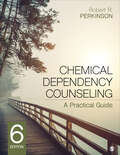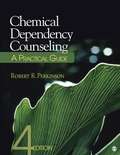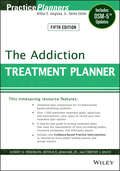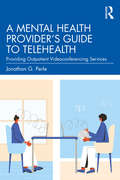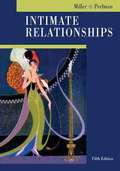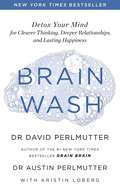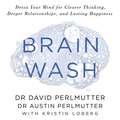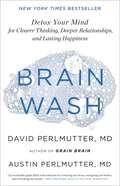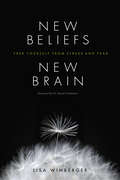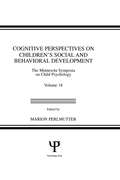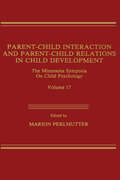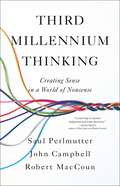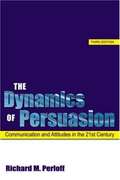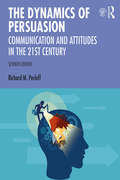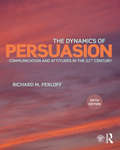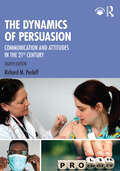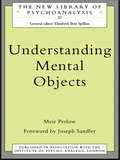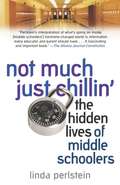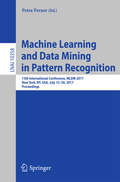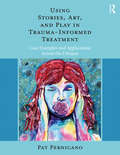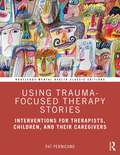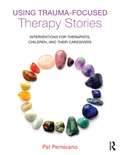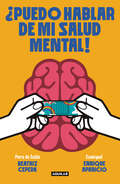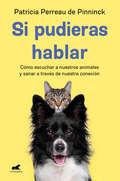- Table View
- List View
Chemical Dependency Counseling: A Practical Guide
by Robert R. PerkinsonHelping individuals recover from addiction is one of the most rewarding professions in the world. Chemical Dependency Counseling: A Practical Guide is the most comprehensive text written for those counselors and professionals who work with or plan to work with clients struggling with chemical dependency in a variety of settings. Following the model of twelve-step programs, providing a ground-up introduction to guide the counselor through treatment from A to Z, and can be used as a core text for courses in addiction or substance abuse counseling. Author Robert R. Perkinson presents state-of-the-art tools necessary to deliver outstanding treatment and meet the highest standards demanded by accrediting bodies. This 6th edition continues to outline the best evidence-based treatment in the world, with a concentration on the following: cognitive behavioral therapy; motivational enhancement; medication assisted treatment, skills training; and 12-step facilitation.
Chemical Dependency Counseling: A Practical Guide, Fourth Edition
by Robert R. PerkinsonChemical Dependency Counseling is a comprehensive guide for counselors and front-line professionals who work with the chemically dependent and addicted in a variety of treatment settings. The text shows the counselor how to use the best evidence-based treatments available, including motivational enhancement, cognitive behavioral therapy, skills training, medication and 12 step facilitation.
The Addiction Treatment Planner
by Robert R. Perkinson Arthur E. Jongsma Jr. Timothy J. BruceThe bestselling treatment planning system for mental health professionalsThe Addiction Treatment Planner, Fifth Edition provides all the elements necessary to quickly and easily develop formal treatment plans that satisfy the demands of HMOs, managed care companies, third-party payors, and state and federal agencies.New edition features empirically supported, evidence-based treatment interventionsOrganized around 43 behaviorally based presenting problems, including substance use, eating disorders, schizoid traits, and othersOver 1,000 prewritten treatment goals, objectives, and interventions--plus space to record your own treatment plan optionsEasy-to-use reference format helps locate treatment plan components by behavioral problemIncludes a sample treatment plan that conforms to the requirements of most third-party payors and accrediting agencies including CARF, The Joint Commission (TJC), COA, and the NCQA
A Mental Health Provider's Guide to Telehealth: Providing Outpatient Videoconferencing Services
by Jonathan G. PerleThis book works as a guide to videoconferencing practice for psychological providers through a broad, simplified, and practical overview of pertinent factors. It is a consolidation of research literature and professional experiences of practicing, teaching, and studying videoconferencing. It begins by defining key concepts such as telehealth, telepsychology, and other related terminology and examining the role of telehealth in addressing ongoing mental health disparities. An overview of existing videoconferencing practices, guidebooks and general recommendations, as well as specifics of ethical and legal factors are discussed. The book then details numerous essential factors of videoconferencing practice that are directly applicable to psychological care, including considerations of computer system, video camera, display screen, microphone, videoconferencing platform, bandwidth and latency, and room setup, along with self-care practices. The appendices provide readers with links to resources, checklists, and other documents to guide their practice. Psychologists, counselors, and other mental health providers will find this user-friendly, research-informed guide indispensable when implementing online treatment and teletherapy.
Intimate Relationships (5th edition)
by Daniel Perlman Rowland S. MillerMiller's 5th edition of Intimate Relationships retains all of the qualities that made the trusted text a best seller, with a new organization that makes the material accessible to students. The text has engaging, accessible prose, a comprehensive reach across disciplines, vigorous standards of scholarship, and a personal appeal in its subject matter. The new edition is more concise with two reorganized chapters, but still packed with new developments and current research woven into every chapter. The authors illustrate the relevance of relationship science to readers' everyday lives, encouraging thought and analysis. This lively, comprehensive, user-friendly text provides students with the tools they need to succeed in this course.
Brain Wash: Detox Your Mind for Clearer Thinking, Deeper Relationships and Lasting Happiness
by David PerlmutterThe #1 New York Times bestselling author of Grain Brain and his physician son explore how modern culture threatens to rewire our brains and damage our health, offering a practical plan for healing.Contemporary life provides us with infinite opportunities, along with endless temptations. We can eat whatever we want, whenever we want. We can immerse ourselves in the vast, enticing world of digital media. We can buy goods and services with the touch of a button or the swipe of a finger. But living in this 24/7 hyper-reality poses serious risks to our physical and mental states, our connections to others and even to the world at large.Brain Wash builds from a simple premise: Our brains are being gravely manipulated, resulting in behaviours that leave us more lonely, anxious, depressed, distrustful, illness-prone and overweight than ever before. Based on the latest science, the book identifies the mental hijacking that undermines each and every one of us and presents the tools necessary to think more clearly, make better decisions, strengthen bonds with others and develop healthier habits. Featuring a 10-day boot camp program, including a meal plan and 40 delicious recipes, Brain Wash is the key to cultivating a more purposeful and fulfilling life.'By showing us how to consciously rewire our brains for connection, compassion, and better decisions, Brain Wash provides a framework for reclaiming joy and health in the modern world.'- Deepak Chopra, author of Metahuman'Brain Wash reveals how our day-to-day decisions are deeply influenced and actively manipulated by the modern world. But more importantly, it is a powerful manual that allows each of us to reclaim control of our choices and make better decisions that will pave the way for health and happiness. While we generally know what's best for ourselves, acting on this knowledge is a constant struggle. Brain Wash allows us to turn this knowledge into action. I highly recommend this innovative book.'- Daniel G. Amen, MD, founder, Amen Clinics and author of The End of Mental Illness
Brain Wash: Detox Your Mind for Clearer Thinking, Deeper Relationships and Lasting Happiness
by David PerlmutterThe #1 New York Times bestselling author of Grain Brain and his physician son explore how modern culture threatens to rewire our brains and damage our health, offering a practical plan for healing. Contemporary life provides us with infinite opportunities, along with endless temptations. We can eat whatever we want, whenever we want. We can immerse ourselves in the vast, enticing world of digital media. We can buy goods and services with the touch of a button or the swipe of a finger. But living in this 24/7 hyper-reality poses serious risks to our physical and mental states, our connections to others and even to the world at large. Brain Wash builds from a simple premise: Our brains are being gravely manipulated, resulting in behaviours that leave us more lonely, anxious, depressed, distrustful, illness-prone and overweight than ever before. Based on the latest science, the book identifies the mental hijacking that undermines each and every one of us and presents the tools necessary to think more clearly, make better decisions, strengthen bonds with others and develop healthier habits. Featuring a 10-day boot camp program, including a meal plan and 40 delicious recipes, Brain Wash is the key to cultivating a more purposeful and fulfilling life.(P) 2020 Hachette Audio
Brain Wash: Detox Your Mind for Clearer Thinking, Deeper Relationships, and Lasting Happiness
by David Perlmutter Austin PerlmutterFight back against a modern culture that is rewiring our brains and damaging our health with this practical, doctor-approved plan for healing that includes a ten-day boot camp and forty delicious recipes.Contemporary life provides us with infinite opportunities, along with endless temptations. We can eat whatever we want, whenever we want. We can immerse ourselves in the vast, enticing world of digital media. We can buy goods and services for rapid delivery with our fingertips or voice commands. But living in this 24/7 hyper-reality poses serious risks to our physical and mental states, our connections to others, and even to the world at large. Brain Wash builds from a simple premise: Our brains are being gravely manipulated, resulting in behaviors that leave us more lonely, anxious, depressed, distrustful, illness-prone, and overweight than ever before.Based on the latest science, the book identifies the mental hijacking that undermines each and every one of us, and presents the tools necessary to think more clearly, make better decisions, strengthen bonds with others, and develop healthier habits. Featuring a 10-day bootcamp program, including a meal plan and 40 delicious original recipes, Brain Wash is the key to cultivating a more purposeful and fulfilling life.
New Beliefs, New Brain
by David Perlmutter Lisa WimbergerStress is a silent killer that contributes to heart attacks, strokes, high blood pressure, depression, and suicide. Drawing from her own history with trauma and her experience in working with first responders and others in high stress occupations, Lisa Wimberger teaches powerful meditation practices that will improve the mental and emotional quality of life for those who are suffering. These techniques can be used at any time to turn back the body's clock, regenerate the mind, break negative patterns, and heal emotional wounds. Foreword by David Perlmutter, author of the # 1 bestselling Grain Brain.
Cognitive Perspectives on Children's Social and Behavioral Development: The Minnesota Symposia on Child Psychology, Volume 18 (Minnesota Symposia on Child Psychology Series)
by Marion PerlmutterThis volume contains the papers presented at the eighteenth Minnesota Symposia on Child Psychology, held October 27-29, 1983, at the University of Minnesota, Minneapolis. As has been the tradition for this annual series, the faculty of the Institute of Child Development invited internationally eminent researchers to present their research and to consider problems of mutual concern to scientists studying development. The theme of the eighteenth symposium, and the present volume was cognitive perspectives on social and behavior development.
Parent-Child Interaction and Parent-Child Relations: The Minnesota Symposia on Child Psychology, Volume 17 (Minnesota Symposia on Child Psychology Series)
by Marion PerlmutterFirst published in 1984. Routledge is an imprint of Taylor & Francis, an informa company.
Third Millennium Thinking: Creating Sense in a World of Nonsense
by Saul Perlmutter John Campbell Robert MacCounBased on a wildly popular UC Berkeley course, how to use scientists&’ tricks of the trade to make the best decisions and solve the hardest problems in age of uncertainty and overwhelming information. In our deluge of information, it&’s getting harder and harder to distinguish the revelatory from the contradictory. How do we make health decisions in the face of conflicting medical advice? Does the research cited in that article even show what the authors claim? How can we navigate the next Thanksgiving discussion with our in-laws, who follow completely different experts on the topic of climate change? In Third Millennium Thinking, a physicist, a psychologist, and a philosopher introduce readers to the tools and frameworks that scientists have developed to keep from fooling themselves, to understand the world, and to make decisions. We can all borrow these trust-building techniques to tackle problems both big and small. Readers will learn: How to achieve a ground-level understanding of the facts of the modern world How to chart a course through a profusion of possibilities How to work together to take on the challenges we face today And much more Using provocative thought exercises, jargon-free language, and vivid illustrations drawn from history, daily life, and scientists&’ insider stories, Third Millennium Thinking offers a novel approach for readers to make sense of the nonsense.
The Dynamics of Persuasion: Communication and Attitudes in the 21st Century
by Richard M. PerloffA textbook revised from the 1993 first edition not only to incorporate events and changes in the technology of communication, but also to focus more on the role theory and research play in persuasion in American society, and the ethical implications of ideas and research. Annotation (c)2003 Book News, Inc., Portland, OR (booknews.com)
The Dynamics of Persuasion: Communication and Attitudes in the Twenty-First Century (Routledge Communication Series)
by Richard M. PerloffNow in its seventh edition, this essential text continues to provide students with a comprehensive yet accessible overview of the study and practice of persuasive communication. Attuned to the swift changes in the world of persuasion in the twenty-first century, this book covers how theories and research illuminate and adapt to our present digital era, with continued attention to ethical implications and today’s big topics. This new edition features updated definitions of key terms in the field as they relate to present-day practice; an integration of persuasion theories and the ubiquity of online influence; new examples and cases to illustrate persuasive communication’s approach to health campaigns, attitudes, communicator appeals, dissonance, and ethics; and a thorough reflection of the most current scholarship in the field. The Dynamics of Persuasion, Seventh Edition provides a solid foundation for undergraduate students in communication studies and psychology to grasp the key concepts and practices of persuasive communication today. The book is complimented by online resources for both instructors and students, including an instructor’s manual, lecture slides, sample test questions, and links to relevant articles and videos illustrating concepts presented in the text. Please visit www.routledge.com/cw/perloff.
The Dynamics of Persuasion: Communication and Attitudes in the Twenty-First Century (Routledge Communication Series)
by Richard M. PerloffThe Dynamics of Persuasion has been a staple resource for teaching persuasion for nearly two decades. Author Richard M. Perloff speaks to students in a style that is engaging and informational, explaining key theories and research as well as providing timely and relevant examples. The companion website includes materials for both students and instructors, expanding the pedagogical utilities and facilitating adoptions. The sixth edition includes: updated theoretical and applied research in a variety of areas, including framing, inoculation, and self-affirmation; new studies of health campaigns; expanded coverage of social media marketing; enhanced discussion of the Elaboration Likelihood Model in light of continued research and new applications to everyday persuasion. The fundamentals of the book – emphasis on theory, clear-cut explanation of findings, in-depth discussion of persuasion processes and effects, and easy-to-follow real-world applications – continue in the sixth edition.
The Dynamics of Persuasion: Communication and Attitudes in the 21st Century (Routledge Communication Series)
by Richard M. PerloffThe eighth edition of The Dynamics of Persuasion again guides readers in understanding the power and limits of persuasion in contemporary society. This edition continues its accessible and detailed illustration of the theoretical underpinnings of persuasive communication through contemporary and relevant examples of persuasion in action. It features coverage of new scholarship on misinformation, health communication, and persuasion effects, including careful attention to persuasion’s role in the Covid-19 pandemic. Important issues such as racial injustice, climate change, and barriers to persuading the politically and psychologically polarized also receive a fresh examination. The book brings together classic terms and approaches from earlier editions with new global developments to help readers adopt a more thoughtful perspective on persuasion. The eighth edition is an essential resource for courses in persuasion at the undergraduate and graduate levels within communication studies, psychology, and business programs. Online resources also accompany the text: an Instructor Manual that contains sample syllabi, key terms, chapter outlines, sample discussion questions, and links to relevant news articles and other online resources such as videos; Lecture Slides; and a Testbank. Please visit: www.routledge.com/9781032268187.
Understanding Mental Objects (The New Library of Psychoanalysis #Vol. 22)
by Meir PerlowThe ways in which an individual (the subject) relates to and perceives other people (his or her 'objects') has always been a preoccupation of psychoanalysis and in recent years a plethora of concepts has grown up in the literature. In this ground-breaking study, Meir Perlow sets out to clarify the changing meanings of the different concepts from context to context, discussing in depth the theoretical issues underlying them. The book begins with an historical survey of how mental objects have been understood in the various 'schools' of psychoanalysis as they have developed. These include Freud and his associates, the object-relations approaches of Klein, Fairbairn and Bion, orientations derived from ego psychology such as those of Schafer and Kernberg, and the self orientation of Winnicott and Kohut. In Part Two the author discusses the conceptual and clinical issues involved in the major differences between the concepts. Finally, in Part Three he delineates three basic meanings of the concepts of mental objects as they have emerged in the literature and shows how they are related to ongoing issues in contemporary psychoanalysis. This long overdue clarification of a complex area, with its wide ranging and imaginative grasp of the different theories about objects, will be an invaluable reference for all psychoanalysts and psychologists.
The Gestalt Approach, and Eye Witness to Therapy
by Fritz PerlsThe Gestalt Approach is "an exploration of a somewhat new approach to the entire subject of human behavior -- both in its actuality and its potentiality." Eye Witness contains film transcripts that Perls believed had significant teaching value.
Not Much Just Chillin': The Hidden Lives of Middle Schoolers
by Linda PerlsteinSuddenly they go from striving for A's to barely passing, from fretting about cooties to obsessing for hours about crushes. Former chatterboxes answer in monosyllables; freethinkers mimic everything from clothes to opinions. Their bodies and psyches morph through the most radical changes since infancy. They are kids in the middle-school years, the age every adult remembers well enough to dread. Here at last is an up-to-date anthropology of this critically formative period. Prize-winning education reporter Linda Perlstein spent a year immersed in the lunchroom, classrooms, hearts, and minds of a group of suburban Maryland middle schoolers and emerged with this pathbreaking account. Perlstein reveals what's really going on under kids' don't-touch-me facade while they grapple with schoolwork, puberty, romance, and identity. A must-read for parents and educators, Not Much Just Chillin' offers a trail map to the baffling no-man's-land between child and teen.
Machine Learning and Data Mining in Pattern Recognition
by Petra PernerTheInternationalConferenceonMachineLearningandDataMining(MLDM)is the third meeting in a series of biennial events, which started in 1999, organized by the Institute of Computer Vision and Applied Computer Sciences (IBaI) in Leipzig. MLDM began as a workshop and is now a conference, and has brought the topic of machine learning and data mining to the attention of the research community. Seventy-?ve papers were submitted to the conference this year. The program committeeworkedhardtoselectthemostprogressiveresearchinafairandc- petent review process which led to the acceptance of 33 papers for presentation at the conference. The 33 papers in these proceedings cover a wide variety of topics related to machine learning and data mining. The two invited talks deal with learning in case-based reasoning and with mining for structural data. The contributed papers can be grouped into nine areas: support vector machines; pattern dis- very; decision trees; clustering; classi?cation and retrieval; case-based reasoning; Bayesian models and methods; association rules; and applications. We would like to express our appreciation to the reviewers for their precise andhighlyprofessionalwork. WearegratefultotheGermanScienceFoundation for its support of the Eastern European researchers. We appreciate the help and understanding of the editorial sta? at Springer Verlag, and in particular Alfred Hofmann,whosupportedthepublicationoftheseproceedingsintheLNAIseries. Last, but not least, we wish to thank all the speakers and participants who contributed to the success of the conference.
Using Stories, Art, and Play in Trauma-Informed Treatment: Case Examples and Applications Across the Lifespan
by Pat PernicanoThis book shows new and experienced therapists how to use meaningful therapeutic material in art, stories and play to facilitate shifts in outlook and behavior. Using a wide variety of case studies, Dr. Pernicano lays out a framework for problem clarification, conceptualization, trauma-informed intervention, and positive therapeutic outcome with clients across the lifespan. Case examples include working with clients suffering from dissociation, depression, anxiety, mood dysregulation, adjustment to life change, grief and loss, and/or panic attacks. Replete with client-generated illustrations as well as practical tips and strategies, Using, Art, Stories, and Play in Trauma-Informed Treatment teaches therapists how to think conceptually, plan systemically and intervene flexibly to improve treatment outcomes for diverse clients.
Using Trauma-Focused Therapy Stories: Interventions for Therapists, Children, and Their Caregivers (Routledge Mental Health Classic Editions)
by Pat PernicanoUsing Trauma-Focused Therapy Stories is a groundbreaking treatment resource for trauma-informed therapists who work with abused and neglected children ages nine years and older as well as their caregivers. The classic edition includes a new preface from the author reflecting on changes in the field since the book’s initial publication. The therapy stories are perfect accompaniments to evidence-based treatment approaches and provide the foundation for psychoeducation and intervention with the older elementary-aged child or early pre-teen. Therapists will also benefit from the inclusion of thorough guides for children and caregivers, which illustrate trauma and developmental concepts in easy-to-understand terms. The psychoeducational material in the guides, written at a third- to fourth-grade reading level, may be used within any trauma-informed therapy model in the therapy office or sent-home for follow-up. Each therapy story illustrates trauma concepts, guides trauma narrative and cognitive restructuring work, and illuminates caregiver blind spots; the caregiver stories target issues that often become barriers to family trauma recovery. No therapist who works with young trauma survivors will want to be without this book, and school-based professionals, social workers, psychologists and others committed to working with traumatized children will find the book chock-full of game-changing ideas for their practice.
Using Trauma-Focused Therapy Stories: Interventions for Therapists, Children, and Their Caregivers
by Pat PernicanoUsing Trauma-Focused Therapy Stories is a groundbreaking treatment resource for trauma-informed therapists who work with abused and neglected children ages nine years and older as well as their caregivers. The therapy stories are perfect accompaniments to evidence-based treatment approaches and provide the foundation for psychoeducation and intervention with the older elementary-aged child or early pre-teen. Therapists will also benefit from the inclusion of thorough guides for children and caregivers, which illustrate trauma and developmental concepts in easy-to-understand terms. The psychoeducational material in the guides, written at a third- to fourth-grade reading level, may be used within any trauma-informed therapy model in the therapy office or sent-home for follow-up. Each therapy story illustrates trauma concepts, guides trauma narrative and cognitive restructuring work, and illuminates caregiver blind spots; the caregiver stories target issues that often become barriers to family trauma recovery. No therapist who works with young trauma survivors will want to be without this book, and school-based professionals, social workers, psychologists and others committed to working with traumatized children will find the book chock-full of game-changing ideas for their practice.
¿Puedo hablar de mi salud mental!
by Perra de Satán EsnorquelDos personas cucú te explican que ir al psicólogo no es ninguna locura. Desde su exitoso pódcast, ¿Puedo hablar!, Enrique Aparicio (Esnórquel) y Beatriz Cepeda (Perra de Satán) rompen tabúes y tratan con naturalidad cuestiones como la ansiedad, la depresión, los trastornos de la conducta alimentaria o la ideación suicida. El libro ¿Puedo hablar de mi salud mental! es el puente que quieren tender a todas las personas que intuyen que hay algo en su vida que falla, pero no se atreven a pedir ayuda. Su ejemplo, el de dos personas para las que la terapia ha sido fundamental, puede servir de impulso para quienes saben que deben arreglar algo en su cabeza, aunque no sepan bien lo que es. «Durante mucho tiempo creí que el sufrimiento era intrínseco a la vida, una consecuencia natural de hacerse mayor. En terapia empecé a deshacer el precario castillo de naipes sobre el que había construido mi visión del mundo: descubrí que ser gay y gordo no solo eran dos simpáticas circunstancias, sino partes de mi identidad que me habían expuesto a una serie de violencias que me condicionaban. La ayuda profesional me dado herramientas fundamentales. Por eso quiero que, si crees que la necesitas, acudas a ella cuanto antes». Enrique Aparicio, Esnórquel «Cuando empecé a engordar mi vida cambió por completo. Pasé de ser una niña sin problemas a una con un problema muy gordo. Nuestra sociedad hace creer a las niñas que engordar es algo muy grave contra lo que deben luchar. Cuando iba al médico y me quejaba de los nervios, ya que no sabía lo que era la ansiedad, le explicaba que sufría ataques, dolores de cabeza muy frecuentes y otros síntomas. La única respuesta que recibía era: Tienes que adelgazar, haz deporte y come menos. Acabé desarrollando un trastorno de la conducta alimentaria. Si he contado mi historia y he escrito este libro es para ponérselo más fácil a otras personas». Beatriz Cepeda, Perra de Satán
Si pudieras hablar: Cómo escuchar a nuestros animales y sanar a través de nuestra conexión
by Patricia Perreau de PinninckMejora la relación con tu mascota y aprende a fortalecer vuestro vínculo único. Aunque no seamos conscientes de ello, los animales nos hablan todo el tiempo. Usan para ello distintos tipos de comunicación, entre las que está la comunicación animal, una capacidad innata en todo ser humano basada en un lenguaje común entre especies. A través de ella, les damos la oportunidad de ser escuchados y de expresar todo lo que necesitan para su bienestar. La comunicadora animal Patricia Perreau de Pinninck nos enseña en este libro a reforzar nuestro nexo a niveles más profundos. De este modo, conectamos también con nuestra propia esencia, con nuestra propia animalidad y con nuestro corazón. Aprendemos a relacionarnos con nuestros animales y con nosotros mismos desde otro lugar. Así, evolucionamos y trabajamos conjuntamente en nuestro crecimiento personal, mejorando nuestra convivencia, y descubrimos que la sanación de nuestros animales también nos sana a nosotros.
